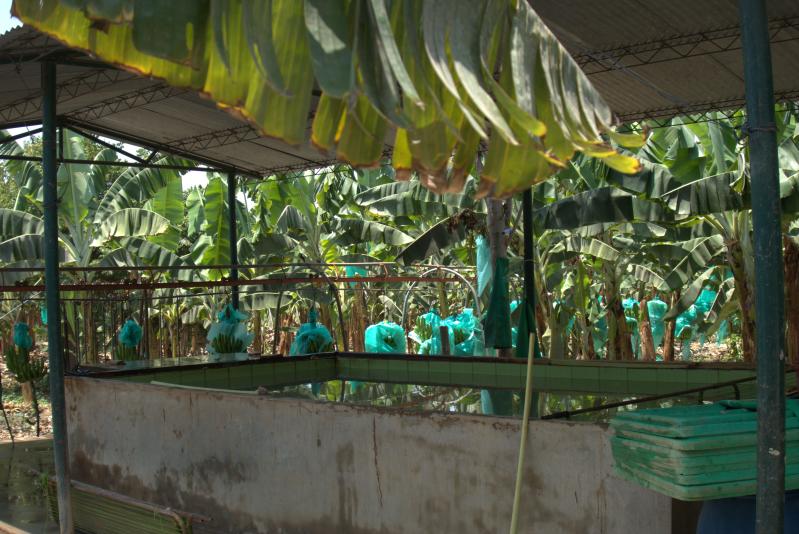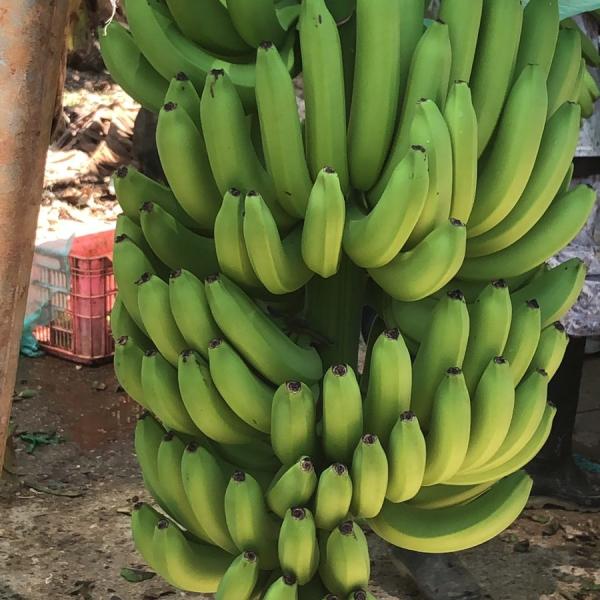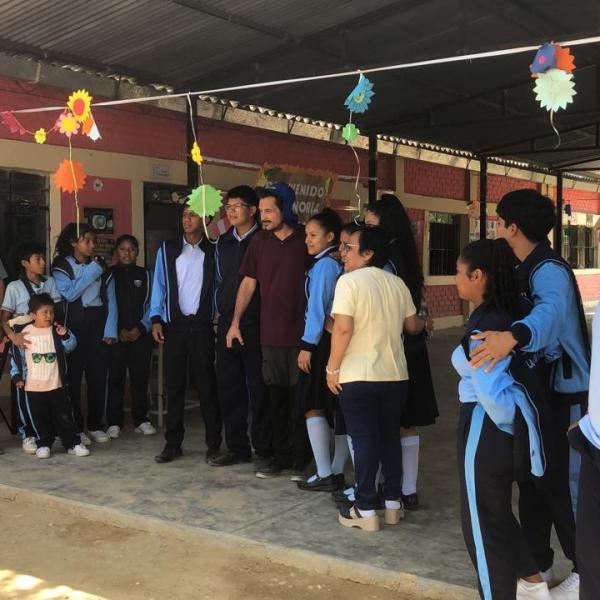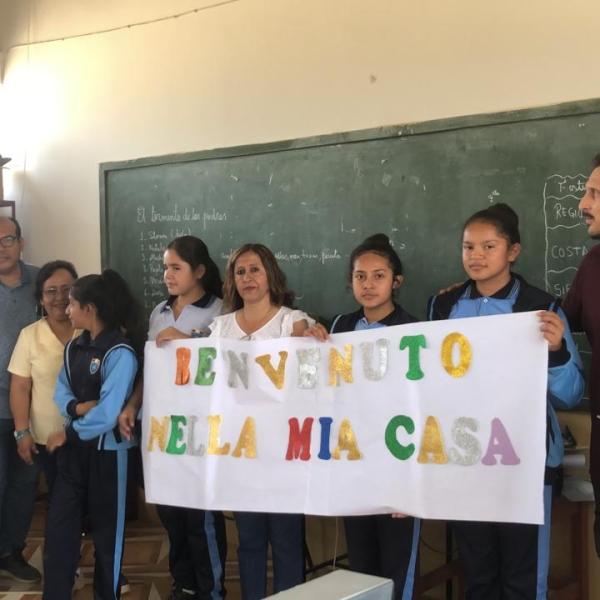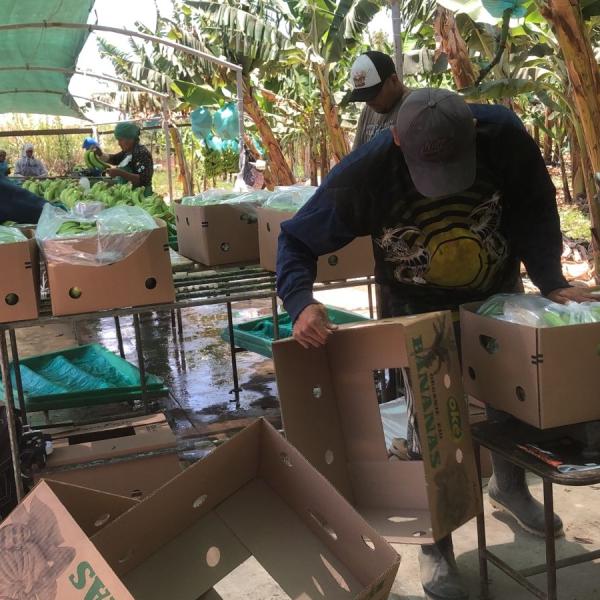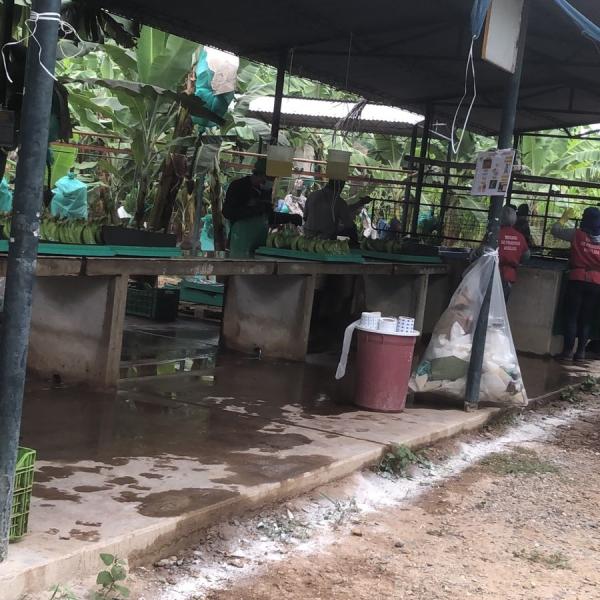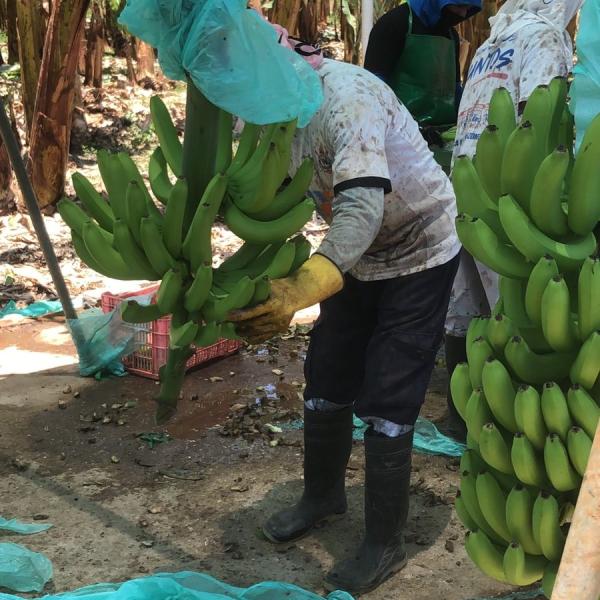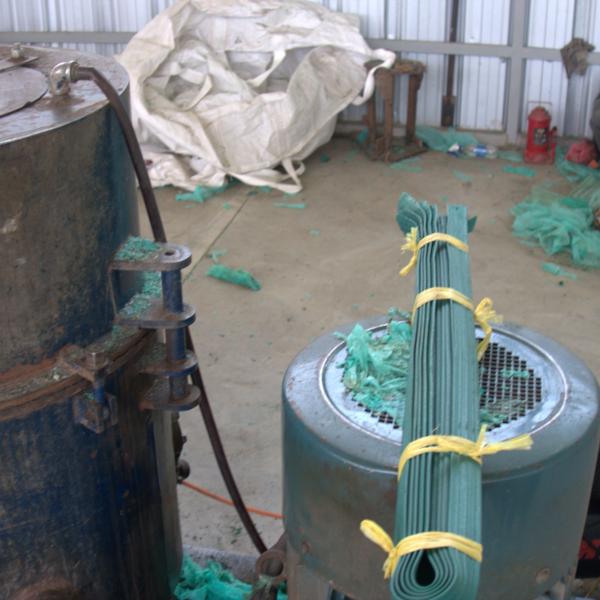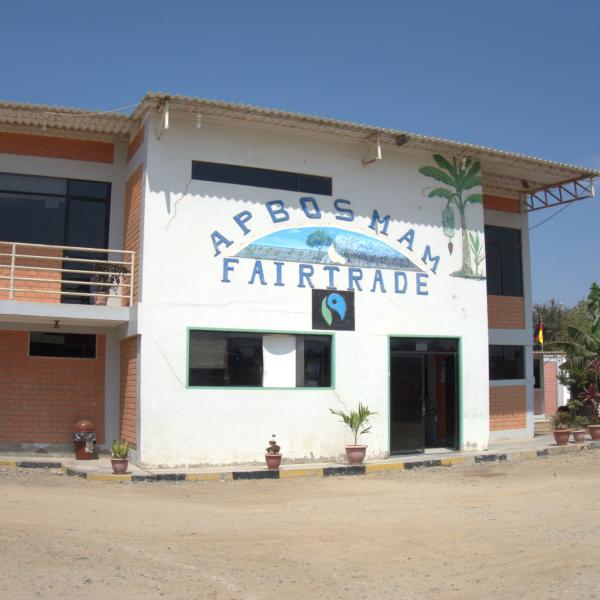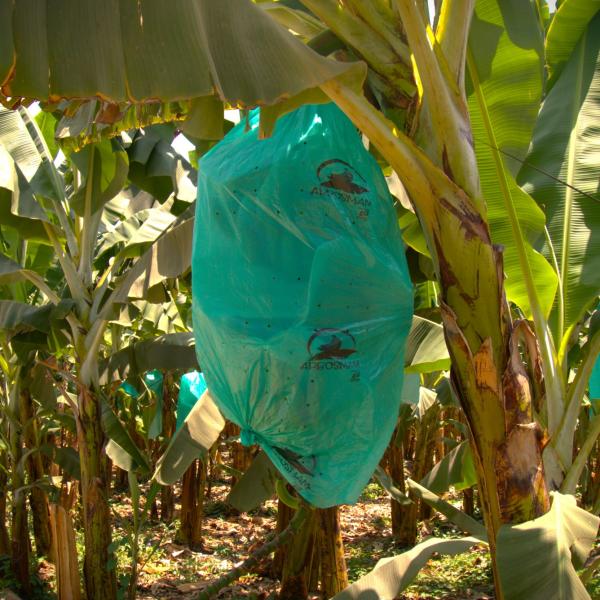APBOSMAM and APPBOSA are the cooperatives that bring together Peruvian producers of bananas distributed by our cooperative
CERTIFICATION AND ITS REPERCUSSIONS
The FAIRTRADE Flo certification, which is the world's leading fair trade certification, serves to guarantee small producer organizations with which it works a FAIR MINIMUM price for their products, and the return of a substantial annual premium to be spent on social utility.
After more than 20 years, the FAIRTADE partners from whom we buy have developed various BIO and Fairtrade supply chains on site, and directly channel aid to local projects with associations and bodies.
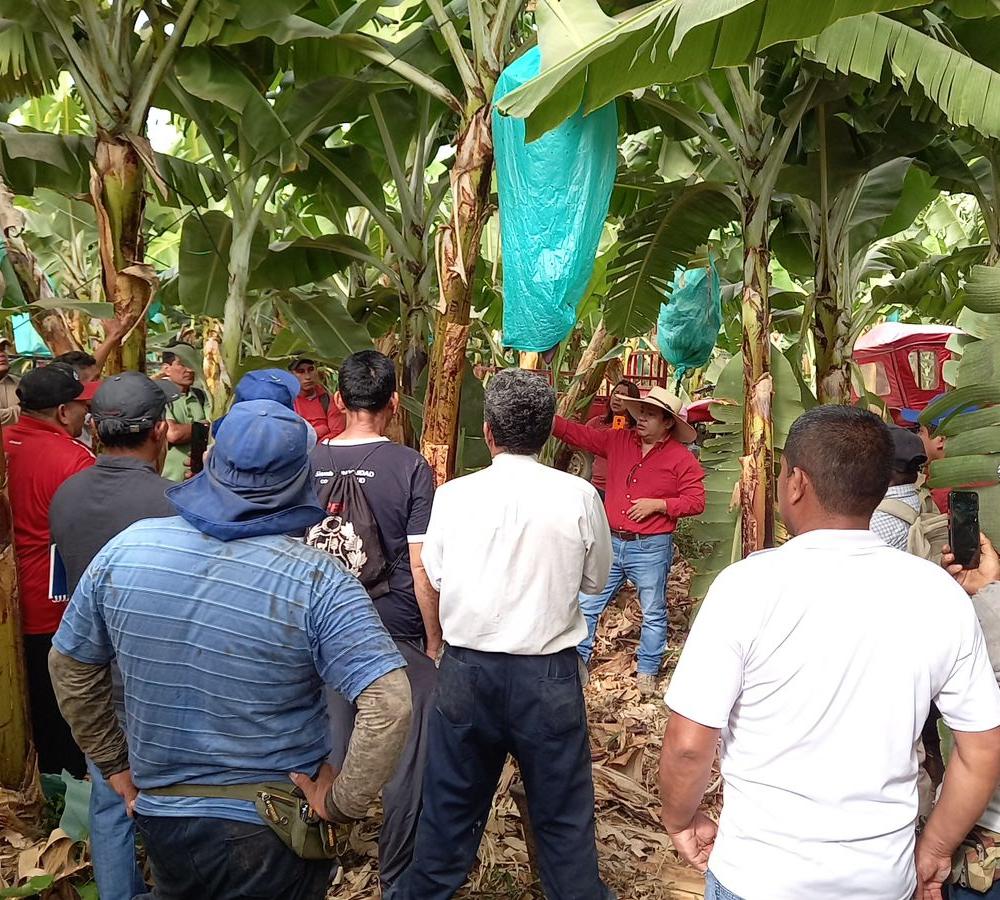
APBOSMAM and APPBOSA are the cooperatives that bring together the producers of the bananas distributed by our cooperative.
We visited the APBOSMAM cooperative, founded in 2012 by a group of small conventional banana producers who contributed to DOLE, the banana giant responsible for disastrous social and environmental impacts in many countries.
Thanks to producer organizations such as APBOSMAM, they redeemed their work from the multinational through a rapid process assisted by local technicians and European BIO and FAIRTRADE companies and today they have more than 400 small producers with 1-2 hectares
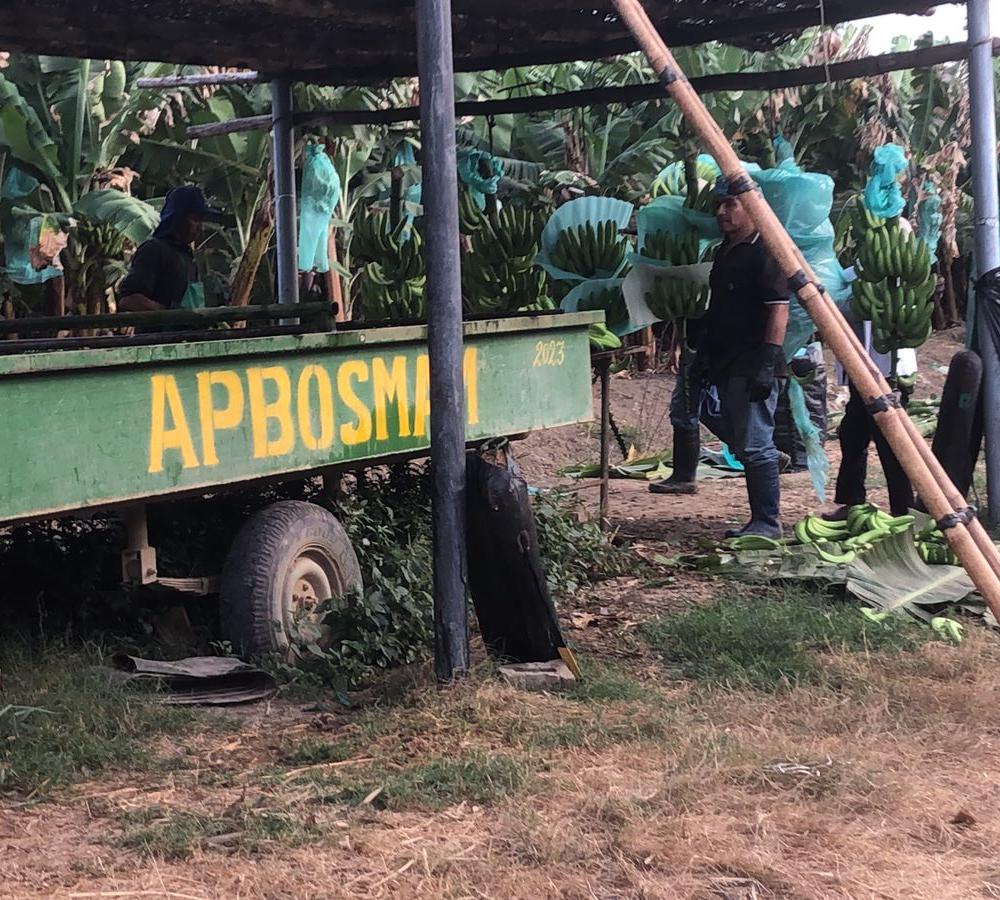
Banana plantations are concentrated in semi-desert areas in the Piura region, crossed by large rivers that descend from the Andes. These productive oases are home to both large producers of rice and sugar cane and small producers of limes and bananas. The processing points are located inside the banana groves, connected by pulleys to the various plots, the helmets are in fact completely processed on site: selected and cleaned, cut into “hands”, washed in chlorinated water and bagged and boxed in 18 kg crates to be sent to cooperative warehouses. Here the crates are “palletized”, loaded onto refrigerated containers, then embarked at the nearby port of Paita, to arrive in Europe in about 18 days. In Italy and Holland, they are stored in suitable conditions to resume and complete
maturation.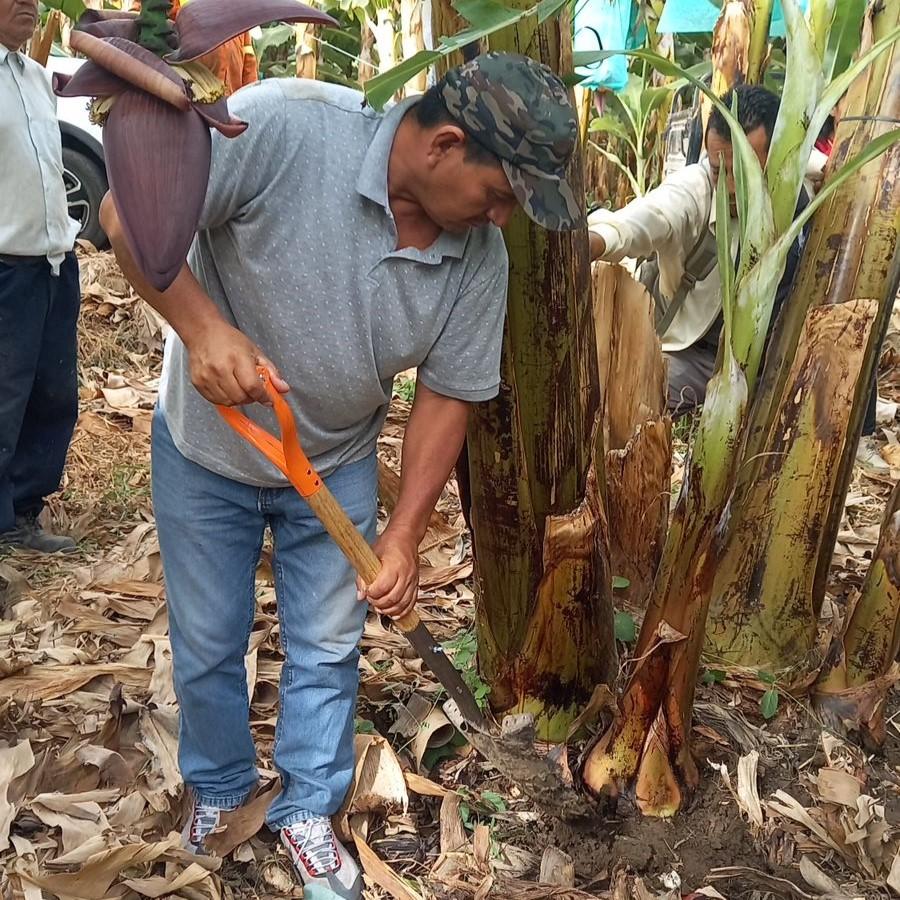
Agronomists have created open-air composting laboratory centers through which they develop and produce compost and various liquid biofertilizers for farmers. They also provide constant field assistance to producer members in the field of organic fertilization and self-production of various fertilizers, in addition, of course, to agronomic management. The main waste materials come from the banana groves themselves, from the sugar cane supply chain and from the droppings of goats, raised
in small flocks.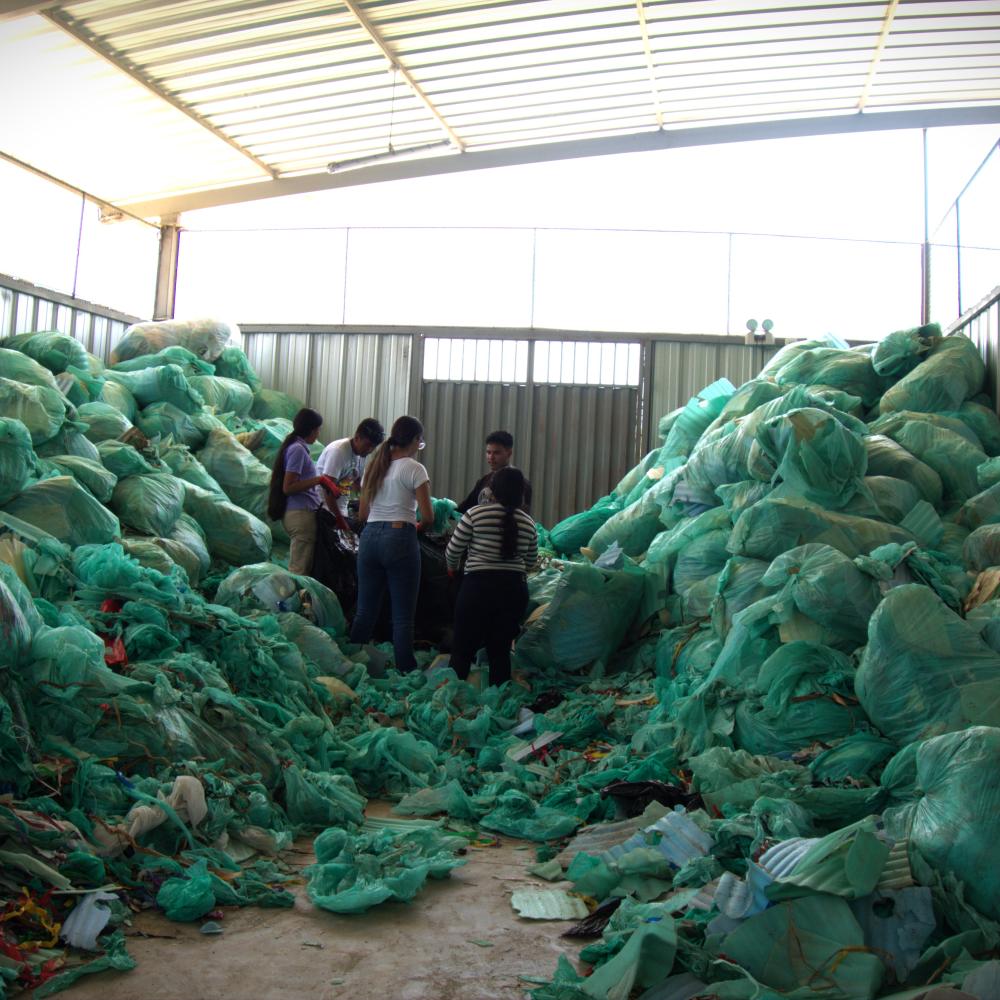
CORNER SUPPORTS FROM RECYCLED PLASTIC!
The main environmental problem of organic banana production (for conventional bananas the list is very long) is the use of bags for ripening “helmets” on the plant and for disposal... which often does not happen and are released in the field. A few years ago, a small company created a plastic recovery chain for the production of corner pieces! In collaboration with local environmental associations that collect up to 3 TONS of plastic per week! The network of cooperatives linked to NASAM uses only these corners and actively participates in the collection of bags and other plastics used during the supply chain
!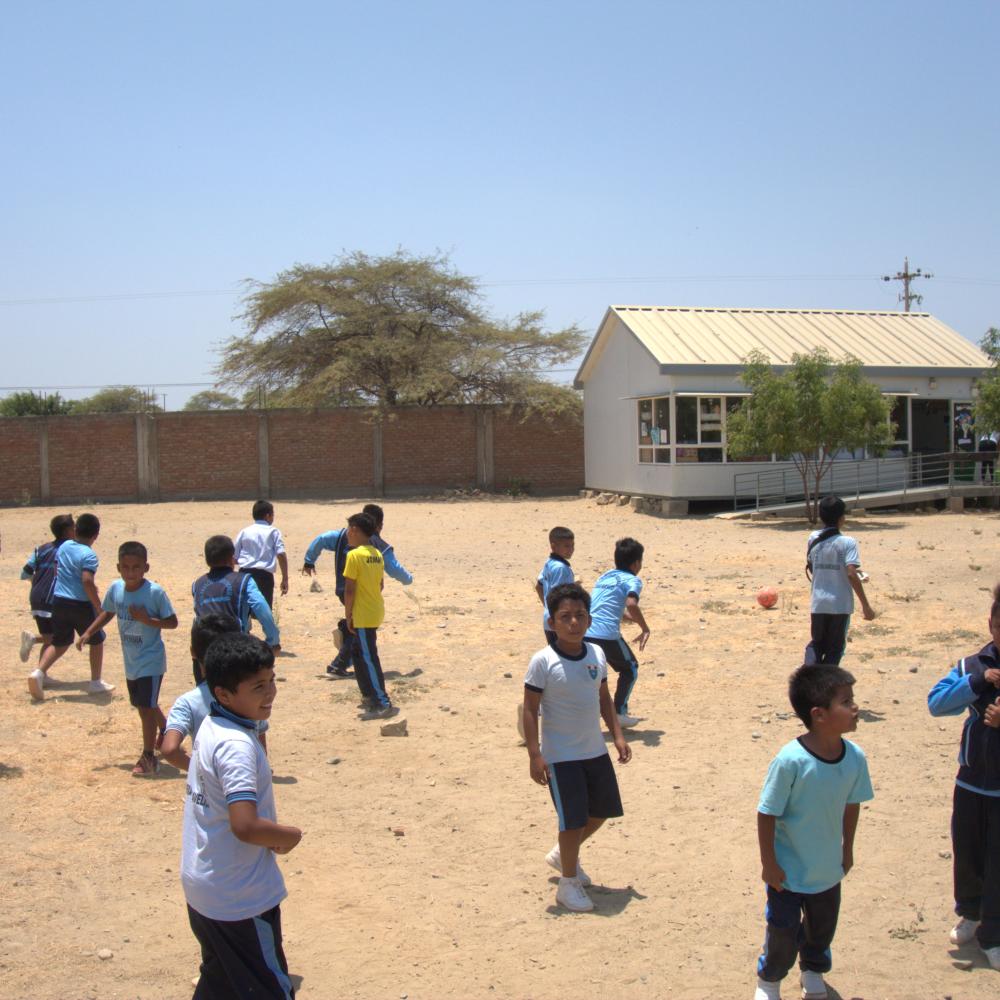
Thanks to OrganicSur, we have seen the real impact of this supply chain.
In Sullana, we visited the school built thanks to the FAIRTRADE award and other donations from fair-trade actors where the children of the producers and all the children in the area can grow up achieving excellent results in terms of training, social and sports.
Great welcome and gratitude...
Youtube Video has been blocked due to your privacy settings
If you turn on YouTube Video, your privacy preferences will be updated. If you have not agreed to activate third-party cookies for analysis and marketing purposes, this choice will be changed when you approve to unblock the use of Youtube Video
You can always go back and change your settings on the cookie conditions. On the same page you will find information about the person responsible for managing your data, the processing of personal data and the purposes of such processing.
Accept privacy and unlock Youtube Video